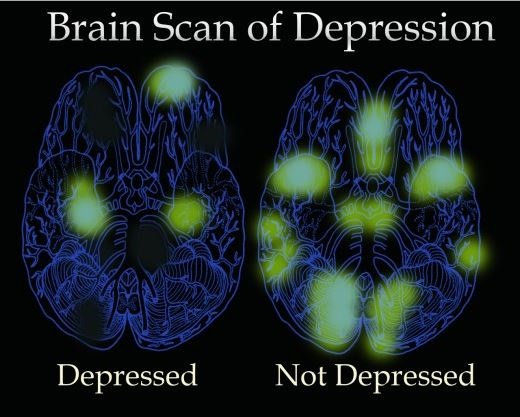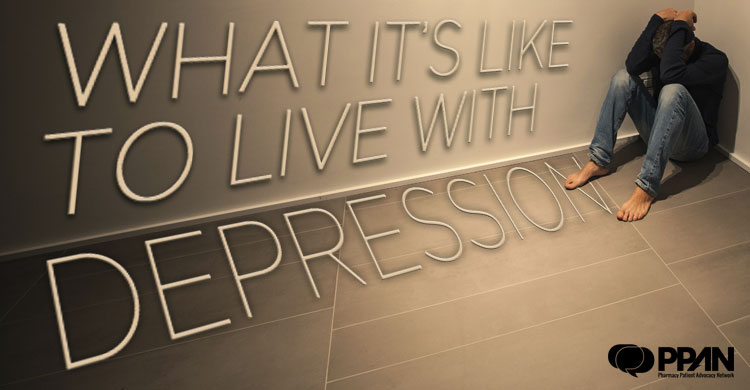What It’s Like to Live With Depression
Clinical depression is cited as a condition that has both psychological and physiological components to its expression. Most often it is a combination of chemical imbalances in the brain that are further influenced by experiential factors that inform a person’s perception. Most people with clinical depression have experienced the condition their entire lives, as it is so closely related to individual system function.
However, since life circumstances also play a part in how perceptions are formed, individuals with chemical imbalances can go undiagnosed for years, until a traumatic or stressful event triggers a downward spiral for lack of coping. This breeds further feeling of helplessness and hopelessness all of which contribute to the burden of the disorder.
Recognizing Symptoms of Depression
It should also be noted that nearly everyone will experience depression at some point in their lives. Frequent precursors to this situation can include:
- Changes in lifestyle
- Physical or emotional trauma
- Divorce
- Death
- Extreme stress
In situations where the precipitating factor is more closely related to an event rather than a clinical condition can vary in their duration. Some individuals are able to move through their grief process with relative speed, while others may feel trapped within the depression for several years. Even with the range in duration, the severity of the depression can still impact the ability to function and to participate in life events.
This can also make it important to recognize the symptoms of depression, as the overall loss of interest in any pastime or distraction can also mask the fact that this feeling is present. It is not uncommon for people with a depression disorder or a deeply depressed state to entirely not realize that they actually are depressed. This goes along with the functional changes that depression can bring on, as cognitive impairment may be a factor.
Generally symptoms for depression are seen as changes in the normal behaviors of an individual, although for someone who has suffered from the disease their entire life, these symptoms can be mistaken for personality traits, since they are ever present. Some of the more common indicators include:
- Anger
- Sleep changes
- Appetite changes
- Loss of interest, especially in activities that once gave pleasure and in social situations
- Self-loathing
- Recklessness, which can include poor decision making
- Impulsivity
- Obsessive and compulsive reactions
- Excessive tiredness
- Body pain and aches, especially ones that seem to have no actual source
It is also important to recognize that all forms of depression do have a physical expression as well. In many ways, the discomfort that is felt in the body is a manifestation of the emotional anguish that is felt, and this can begin to provide others with a clearer sense that depression can be chronic and debilitating.
Another very necessary factor for loved ones of a depressed individual to be aware of is that it is not a personal choice to remain in a depressed state. Although behavioral therapy and other counseling resources can help to retrain the mind to develop better coping skills, this is a mutual process that also involves much work and commitment on the part of the client. The concern is that a person who is suffering from depression may be so entrenched in the state, that even the desire to make a positive change is not enough to initiate the process.

Understanding the Depressed Mind
Helplessness and hopelessness are two of the main contributors to a depressed state. In one study done on rats, exemplars were placed in a tank of water in which they could swim, but from which they could not escape.
What was observed is that rats who were subjected to chemical treatments that mimic depression gave up on escaping much faster than the other two groups. The baseline group of rats that had just been raised naturally lasted twice as long as the depressed group while the final group that had been treated with anti-depressants attempted to swim until they died of exhaustion.
There are several points that are very telling about this experiment, not the least of which is the functional effects of learned helplessness. Although the depressed rats succumbed first, the “normal” rats also gave up after it was realized that there was no escape. This indicates that while the chemical aspect of depression plays a role in severity, there are also strong learned components to the condition.
Another aspect is that the rats who were treated with anti-depressants had an equally negative outcome to the situation, although for different reasons. While the chemical imbalance promoted greater drive, it did not solve the situation, nor did it allow for the formulation of a solution.
A further point that is also necessary to make is that the entire experiment is an apt analogy for the condition of depression. It can feel like state of being that one has simply been dropped into, without any hope for escape. In viewing the mental environment as a rat trapped in the tank, the full impact and debility of depression can begin to be understood.
Treatment Protocols and Side Effects for Medications
Most counselors will seek intervention with patients through a combination of medications and actual therapy. General best practices will test several medications in order to alleviate some of the immediate anguish and discomfort of the condition, as this can often help individual reach a state of mind where they become interested in and motivated to make changes. Further the alleviation of some of the symptoms can also lead to better cognitive function, and this can allow for rational decision making and even the ability to plan for the future.
For some patients, medication may become a lifetime necessity, but others may find that once they have learned better coping skills, they also have the confidence to ask for help should the experience arise again. Although different anti-depressants will function by either boosting or reducing certain neurochemicals in order to achieve balance. Side effects of many of these medications include:
- Nausea
- Increased appetite and weight gain
- Insomnia
- Dry mouth
- Loss of libido
- Blurred vision
- Constipation
- Seizures
- Diabetes





